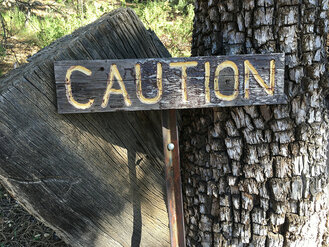A young woman shared with friends and family that her mother was diagnosed with thyroid cancer. She became frustrated when many of them told her, “At least your mom got a good cancer.” While it is true that thyroid cancer has a high survival rate, the young woman wondered, “How can any cancer be good?” In the months ahead, the young woman watched helplessly as her vital and energetic mom wrestled with fatigue and required afternoon naps. How was this good?
0 Comments
 There seem to be no conversational boundaries when it comes to death. The bereaved are often subjected to inappropriate comments and questions that can shock, hurt, or leave us speechless. We are often left wondering, how can friends, family, colleagues, neighbors, and even acquaintances say or ask that? It can be especially stressful when someone you truly care about hurts you. A week after my mother died a friend inquired, “Do you think she knew she was going to die?” I hadn’t pondered that question, but after our conversation, I could think of little else. And as much as the question pained me, I never told my friend; I did not want to lose her friendship. I’m not alone. It is very hard to articulate your feelings when mourning a loss and even harder to do it tactfully. Sometimes it is not just inappropriate conversation; there are people who just cannot understand our loss or our pattern of grief. It can become too difficult for them or us to continue the relationship while we mourn our loss. It is not uncommon for the bereaved to distance themselves or walk away from some friendships. So, how can you handle inappropriate comments or questions?
Robbie Miller Kaplan is an author who writes from a unique perspective as a mother who has lost two children. She has written How to Say It When You Don't Know What to Say, a guide to help readers communicate effectively when those they care about experience loss, available in ebooks for "Illness & Death," "Suicide," "Miscarriage," "Death of a Child," "Death of a Stillborn or Newborn Baby," "Pet Loss," "Caregiver Responsibilities," "Divorce" and "Job Loss." All titles are in Amazon's Kindle Store. Couple in a park photo via photopin (license) copyright Legacy.com Used with permission  A young woman eight months pregnant gave birth to a stillborn baby. Overcome with grief, she asked her supervisor to share the news with her colleagues by e-mail so she would not have to individually communicate her devastating news. It seemed a simple request, but when she returned to work, she learned her supervisor did not notify her colleagues and they were each stunned when she painfully shared the news. Not knowing what to say or do, they avoided her and she felt shunned and alone in her grief. After a few months, she quit her job and left the company. Afraid to say the wrong thing, many people stay away following a death. But it is important to understand how our actions, or lack of action, impact the loss that friends, family members, colleagues, and community members are experiencing. Here's what you should not do: • Do not stay away; death is isolating and when you stay away, it will make the bereaved feel even more alone. • Do not avoid returning phone calls from the bereaved. • Do not refuse the bereaved when you are asked to help. • Do not disregard family wishes for donations and make them instead to your pet cause. • Do not avoid communicating the difficult news of the death, placing the burden on the bereaved. • Do not ask the bereaved to do something for you when they can barely take care of themselves. • Do not ask the bereaved for details. • Do not ask for a possession of the deceased or ask for something back that you had given them. • Do not pay a visit and expect to be fed or entertained. • Do not expect the bereaved to reciprocate your kindness – this is one of those occasions where the bereaved will pay it forward, when they are able. Robbie Miller Kaplan is an author who writes from a unique perspective as a mother who has lost two children. She has written How to Say It When You Don't Know What to Say, a guide to help readers communicate effectively when those they care about experience loss, available in ebooks for "Illness & Death," "Suicide," "Miscarriage," "Death of a Child," "Death of a Stillborn or Newborn Baby," "Pet Loss," "Caregiver Responsibilities," "Divorce" and "Job Loss." All titles are in Amazon's Kindle Store.  No matter how many times it happens, suicide is a sudden, unexpected, and tragic death that leaves the bereaved and the community badly shaken. I personally know this is a grim reality as it has happened to me. My great niece Emily recently died by suicide. The bereaved - not just the immediate family but the entire community - not only feel the raw grief of sudden loss, but may wrestle with the question, over and over again, “Wasn’t there something I could have done to prevent this?” As one clergy member shares, “It is as unexplainable as a bolt of lightning; more actually, because we all know how to stay safe during a storm.” Suicide carries a stigma along with mental illness. It is important to keep in mind that mental illness is a disease; a chronic, cruel, and invisible disease that leaves family members isolated and lonely. What can you do to help? Treat the death and the bereaved with compassion, as you would for any death. Suicide is a cause of death and not a source of shame. Your expressions of grief should mirror those you share for any other death. What to say:
One of the most important things you can do for anyone experiencing a loss is to listen. The bereaved will need to tell their story over and over again to make sense of it. This is an experience that they may never get over, but in time, their feelings will stabilize. Stay the course; you’ll be glad you did. If you need help and want to talk to someone, or if you know someone who needs help, the number for the National Suicide Prevention Lifeline is 800-273-8255. Robbie Miller Kaplan is an author who writes from a unique perspective as a mother who has lost two children. She has written How to Say It When You Don't Know What to Say, a guide to help readers communicate effectively when those they care about experience loss, available in ebooks for "Illness & Death," "Suicide," "Miscarriage," "Death of a Child," "Death of a Stillborn or Newborn Baby," "Pet Loss," "Caregiver Responsibilities," "Divorce" and "Job Loss." All titles are in Amazon's Kindle Store. Image Into Infinity via photopin (license)  The death of a spouse is one of the most devastating and stressful life events. The grief is deep and lasts for a long time. While every individual is different in how they grieve, there may be a period of time when the best the bereaved can do is just get out of bed. Tasks that seem quite ordinary might feel like obstacles and it’s easy to feel insecure and doubtful. So how can you help? Bolster the bereaved's fragile psyche and give compliments. Find anything that you can praise and let them know, “You’re doing fine.” The last thing they need is criticism or someone second guessing their decisions. Here are some things to avoid as they hamper recovery:
 When you learn there’s been a death, what’s your first response? Do you express your condolences to the bereaved and communicate your sadness, or, do you ask a question? A reader shares her experience that when someone has died, one of the first responses she most often hears is the question: “How did they die?” No matter how well meaning, does it really matter how someone died? Does it change the way you should respond to the death? Maybe the question “how” is not one the bereaved wishes to discuss, and yet how does one gracefully navigate a conversation that might be intrusive when overwhelmed with grief? How someone died, whether by accident, terminal illness, unexpected death, violence, or suicide, should not change the way you respond to the news of the death. And it’s important to protect the privacy of the bereaved and not make them uncomfortable with intrusive questions. Are questions ever appropriate when learning of a death? Questions that may be appropriate are: “Can you tell me where I can get information on the funeral, memorial service, or visitation?” “Is the family accepting visitors?” “Can I bring a dinner?” “Where can I make a donation in their memory?” Or, “Is there someone I can call to offer my help?”  When you ask the bereaved “How are you,” what do you expect they’ll say? Should they be honest and tell you “I’m just awful.” Or, should they keep their true feelings hidden and appease you with, “Just fine, thanks for asking?” A friend who is widowed says this question is a hot button for her. She would love to answer, “Dreadful; I just lost the love of my life.” But she too takes the high road and answers “Okay.” The expression that always irked me was “Call me if you need anything.” It’s tough for someone bereaved and grieving to pick up the phone and ask for help. Chances are they don’t have the energy to call or have no idea what to ask for. And what if they do call and ask for your help and you say you’re not available or you can’t do it? It’s painful to be rejected but even more so when grieving a loss. So what can you say? Ask, "How are you doing today?" or, “How are you doing with all this?” An alternative to give me a call is “What can I do to help?” Or, be more specific; “Can I bring dinner on Thursday?” or, “I’m on my way to the grocery store; what can I pick up for you?” Try putting yourself in someone else’s shoes before speaking. How would you feel if asked this question? How would you like someone to help you? Empathy goes a long way in helping a friend or loved feel your support. People ask if I fabricate some of the inappropriate things I write about. I don’t have to; I’m constantly stunned at the things people say and they provide a steady flow of material. All I have to do is listen.
Case in point; I recently had dinner with a group of folks. One dad shared that his daughter had been hit by a car and was in rehabilitation. In further conversation we learned that she was badly injured with short term memory loss. So what was the response? One person asked, “Was it her fault?” The dad replied, “Does it matter?” The dad’s response didn’t stem the flow of inappropriate comments. Another person asked, “Did they catch the driver?” He said again, “Does it matter?” He followed with, “All that matters is she’s alive. And, it could have been much worse.” And it got worse as another dinner guest joked, referring to her memory loss; “Just think, your jokes will be new again.” After the dinner I apologized to the dad for all the awful comments. He shrugged and said he was used to them. Is this an isolated case? I’m afraid not. It left me wondering, why weren’t the dinner guests more empathetic? And why should this dad who has gone through a horrific experience with his daughter have to develop thick skin to deal with such insensitive comments? It would be helpful if everyone would not only think before they speak but ask themselves, “How would I feel if someone said this to me?” |
Categories
All
AuthorRobbie’s goal is to help her readers communicate effectively when their loved ones, neighbors, colleagues, and community members face difficult times. |
|
|
© Robbie Miller Kaplan. All Rights Reserved.
All materials contained on this site are protected by United States copyright law and may not be reproduced, distributed, transmitted, displayed, published, broadcast, neither performed nor used to prepare published works, without the prior written permission of Robbie Miller Kaplan. You may not alter or remove any trademark, copyright, logo or other notice from copies of the content.
All materials contained on this site are protected by United States copyright law and may not be reproduced, distributed, transmitted, displayed, published, broadcast, neither performed nor used to prepare published works, without the prior written permission of Robbie Miller Kaplan. You may not alter or remove any trademark, copyright, logo or other notice from copies of the content.


 RSS Feed
RSS Feed
